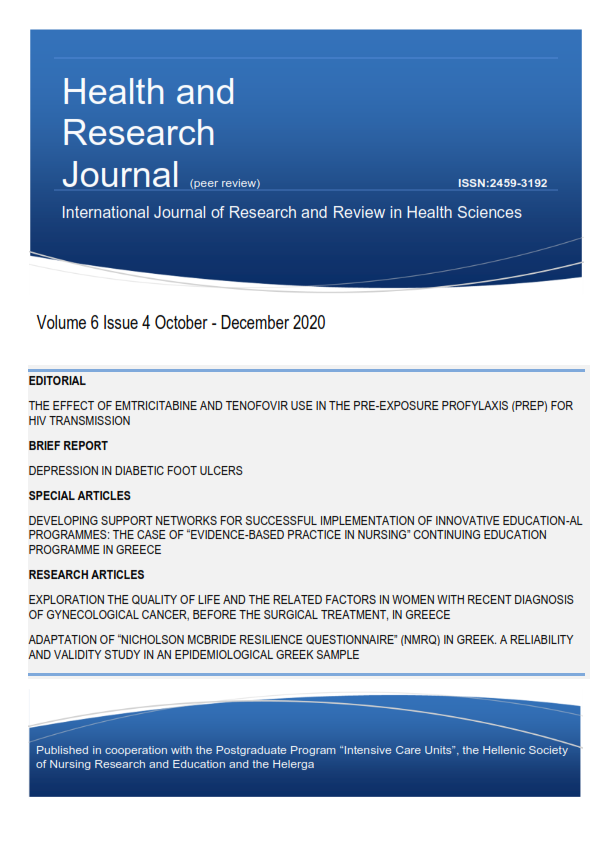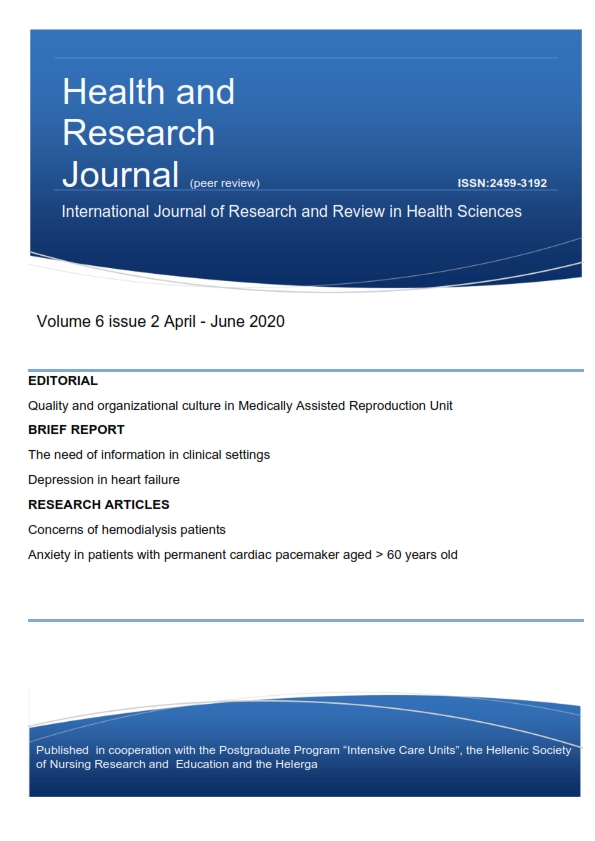Depression in diabetic foot ulcers
Abstract
Article Details
- How to Cite
-
Tsirigotis, S. (2020). Depression in diabetic foot ulcers. Health & Research Journal, 6(4), 105–106. https://doi.org/10.12681/healthresj.25626
- Section
- Brief Report
Copyright notice:
Authors retain copyright of their work and grant the Health and Research Journal the right of first publication.
License:
Articles are published under the Creative Commons Attribution 4.0 International License (CC BY 4.0). This license permits use, sharing, adaptation, distribution, and reproduction in any medium or format, including for commercial purposes, provided that appropriate credit is given to the author(s) and the original publication in this journal, a link to the license is provided, and any changes are indicated.
Attribution requirement:
Any reuse must include the article citation and DOI (where available), and indicate if changes were made.




